Born in Boulogne-sur-Mer, in the North of France, I can catch a glimpse of the English Coast from my childhood-bedroom window, weather permitting. How many migrants have also cast their gaze in the same direction, upon the cliffs of Folkstone or Dover (England), an “El Dorado” seemingly within easy reach?
Currently, due to international politics, Syrian refugees are converging in the North of France, in Boulogne and even more so in Calais, which has long been a fulcrum point for migrant populations. Previously, these cities have received other groups forced to relocate, such as waves of Albanians or Kurdish refugees. However, not all migrants have been, or are, refugees: some are merely seeking a better economic future. Among them are many teenagers traveling alone, separated and cut off from the supports of their immediate families and kinship networks. A movie, Welcome (2009), produced by the French filmmaker P. Lioret, tells the story of Bilal, a Kurdish youth who dreams of reaching England to be with his sweetheart, and to pursue his dream of becoming a famous soccer player. Through my research into Intercultural Education and Language Acquisition in France, before joining the University of Alberta, I have worked with teenagers like Bilal, who leave their countries and families to go to Europe for various reasons, and they have positively impacted me at both a personal and professional level. In what follows, I will share with you a brief theoretical frame for this research, followed by some of their personal testimonies.
I first encountered and began working with these youth in the early 2000s, in Paris and its outskirts, while a PhD student at the Sorbonne (Université Paris 3-Sorbonne Nouvelle). I was drawn to this research because during that period the French media covered stories on groups of delinquent youth, believed to be “Romanian”, who were vandalising and stealing from parking meters in central Paris, who pickpocketed in the train stations, creating heightened tensions around immigration, linked to a greater sense of insecurity among Parisians. Initially, my research was inspired by a personal interest in better understanding who these kids were: assailants or victims. This led me to embark on a decade-and-a-half of research into a very specific migrant/immigrant population, referred to in France as mineurs étrangers isolés—“separated children.” The lives of these adolescents are caught between two competing logics operating simultaneously within European and French systems: on the one hand, French society must offer them protection, according in particular to the Convention on the Rights of the Child; on the other, these minors are often illegal immigrants, who challenge the system at many levels, including the social welfare system, the education system, the immigration system and sometimes the criminal justice system. Some arrive with post-traumatic stress disorder and addiction issues, and without grade-level education or knowledge of French, to name just a few of the challenges they face.
In order to better understand the complex realities experienced by separated children, I donned both my French-teacher and researcher caps, and set out to work closely on a daily basis with these children for over three years, in the context of a specialized immigrant welcome center—a type of youth shelter—in the suburbs of Paris.
These youth are typically between fifteen and sixteen years of age. Currently, in 2015, it is estimated that there are more than 6000 mineurs étrangers isolés in France, who fit the typology of sociologist E. Etiemble (2002). Her five profiles for these youth include the following: les mandatés (those sent by family to Europe), les réfugiés (refugees), les errants (street youth), les fugueurs (runaways), les exploités (trafficked).
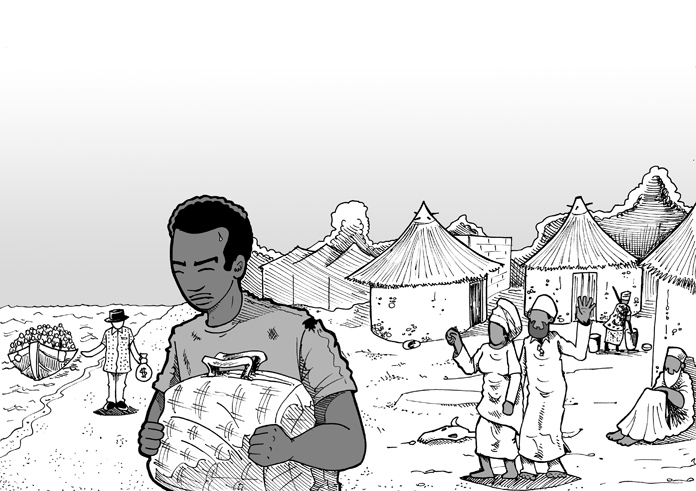
Les mandatés include children and adolescents sent to Europe by their families, to work in Europe and send money back ‘home.’ Through my research, I met many youth who fit this profile—each with a unique story. For example, Djelil (whose name has been changed for reasons of anonymity), embodies the mandatés/mandated. At the time, Djelil, who is from Mali, was a fifteen-year-old boy. He is a solid, respectful, responsible teenager, but he had never been to school, even before arriving to France. He was consistently eager to do everything in his power to fit into French society. He wanted to study and to work, and to make something of himself. He made amazing strides, quickly learning how to read and write, and developing essential numeric literacy. He managed to earn a diploma, and during his practicum worked his way up the line, as a cook in the kitchen of a famous Parisian hotel. Shaojun, a sixteen-year-old Chinese boy, is another good example of the “mandated” youth profile; while quite the opposite of Djelil, Shaojun was emotionally and physically reserved, hardly speaking, despite little verbal interaction, we established a trusting bond that impacted me. He was unable to commit to his studies. The support team suspected that he was busy, nights and weekends, working to pay off his debt to a smuggler. One day, he vanished from the youth shelter. His friends would eventually tell me that he had planned to go to England to live with a cousin. I hope he survived the trip across the Channel, unlike so many who have attempted the crossing. I think of him often and hope he is safe.
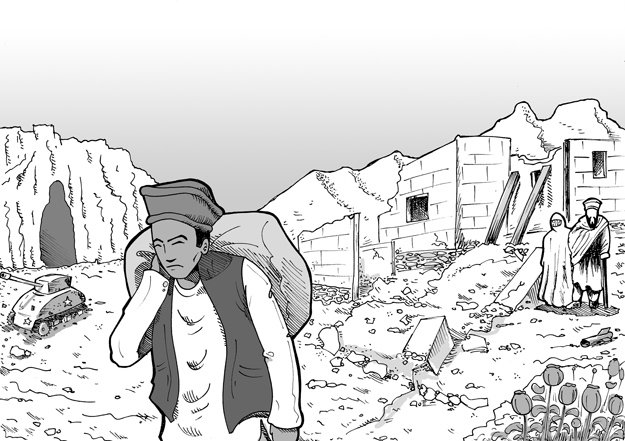
Les réfugiés (refugees)—those fleeing wars, conflicts, discriminations or reprisal—include youth such as Yash, a young Nepali. His story is important to understanding what, for some, refugee status means. He was absolutely adamant that he wanted to apply for and be granted refugee status, as a recognition of all that he had endured. This, despite the fact that his caseworker explained to him that this status actually put him more at risk. As he was hardworking, she felt he would be more quickly and easily granted other forms of immigration status. As a refugee his case could more easily be dismissed, at which point he could be deported. Regardless the (im)practicalities, he decided that being awarded refugee status was personally significant and pursued this avenue.
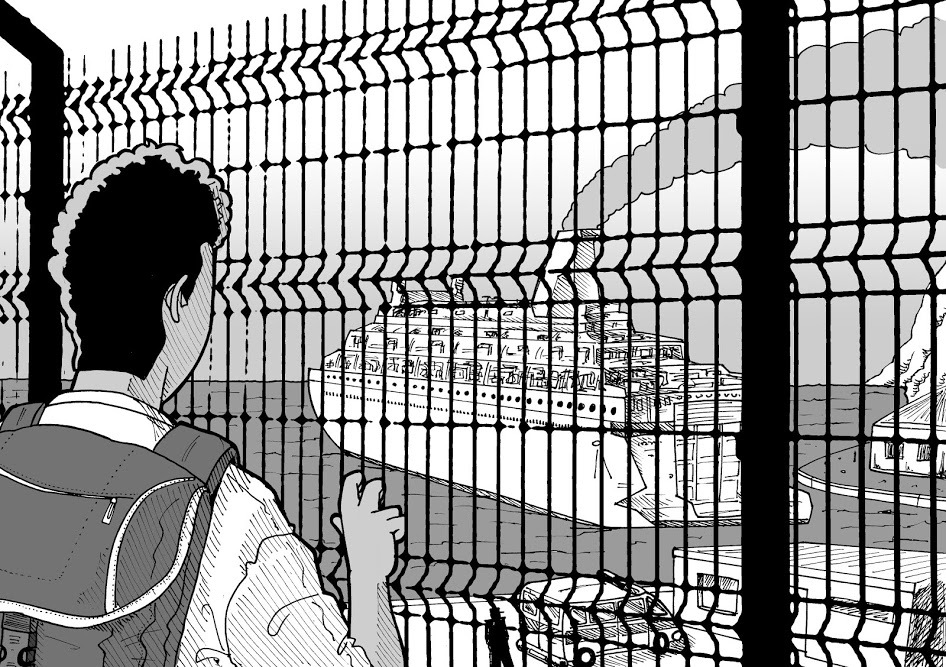
Les errants (street youth) are minors who are already living and spending their time (not all of them homeless) on the streets in their home countries. They arrive to Europe to try their luck in France. In my own research, Abdelkrim, a young Turkish boy, is one such child. He is the youngest of a poor family, and was in constant conflict with his father. In France, despite having fled his father, he did respect and love him and was trying to live up to his expectations. Abdelkrim initially attempted to go to school, and fulfill his caseworkers’s aspirations for him. Drugs and peer pressure eventually disrupted these ambitions.
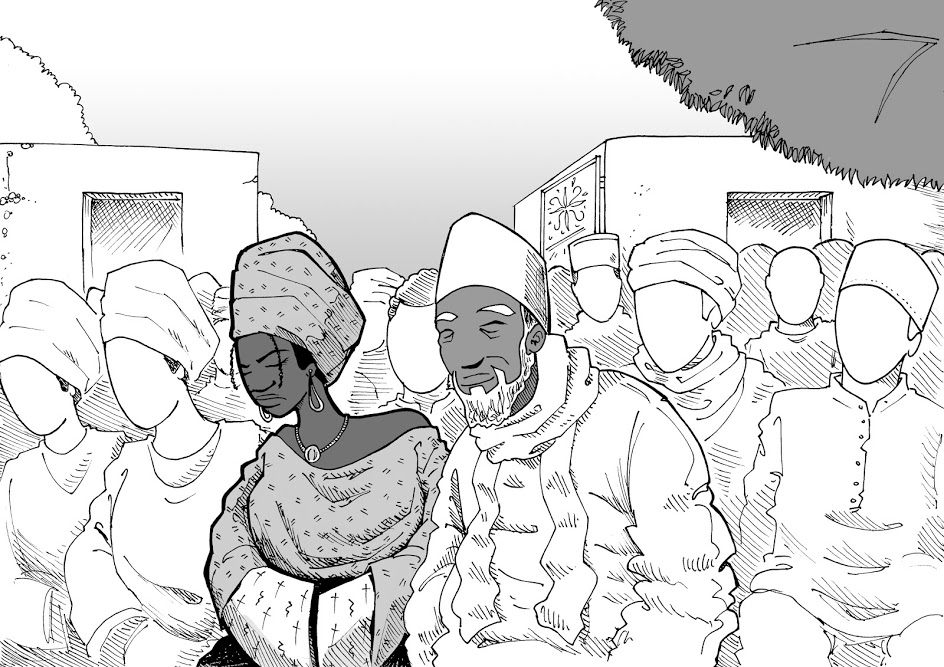
Les fugueurs (runaways) leave their family homes, and for one reason or another, end up immigrating to France. Here, sixteen-year old Mariam comes to mind. Her father wanted her to marry an imam who was much older than her. An aunt helped her escape. Entrusted to a series of people—handed off from one caretaker to the next—she managed to eventually make it to France.
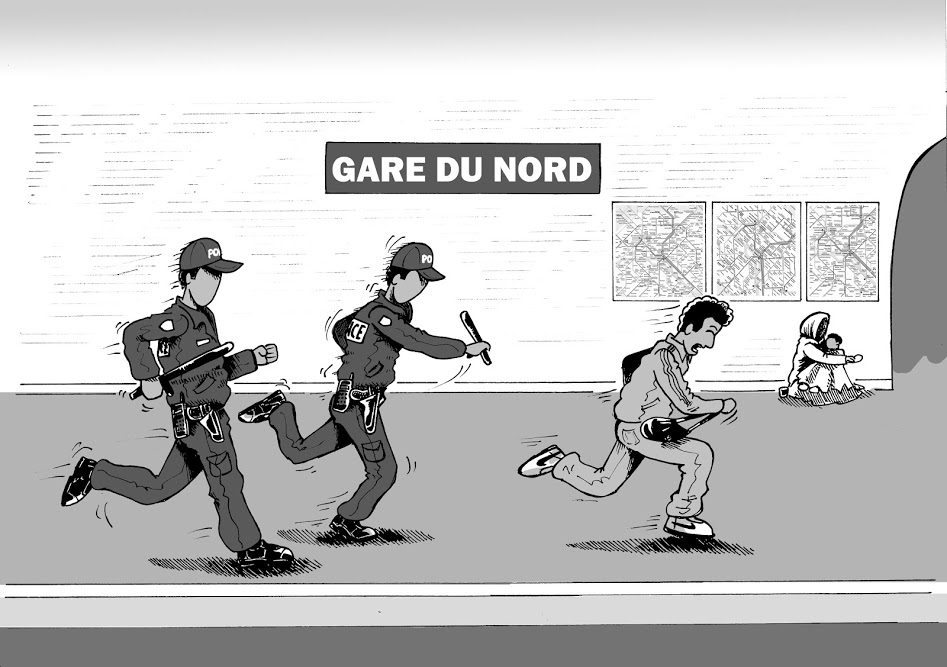
Les exploités (trafficked youth) are youth who fall into the hands of unscrupulous people, who subject them to violence, prostitution, domestic slavery and other injustices. To me, trafficked youth are embodied by Tomas, a young Romanian, who at the age of thirteen was enticed to go to France with a Romanian human trafficker who promised him employment—easy money. He ended up living in squalor in the Paris suburbs, in housings provided by this man, working for him in a range of jobs: construction, drug trafficking, and organized theft. After time spent in prison, he opted to transform his life and to find legitimate employment working in the construction industry.
KIAS calls on us to reflect on the global refugee crisis in Syria, not to mention migrant populations around the world. Refugees, particularly youth, are so often denied a voice. I will now share with you (through transcription) the voices of youth from my research, to whom KIAS has provided a space to share their life and migration stories, might their experiences individualize and productively complicate the identity of “refugee” and migrant, at this critical juncture. The raw data, originally in French (second language), is translated into English and organized into thematic categories ranging from migration experiences, to obstacles faced, to accomplishments.
Thank you for reading on, to hear from these youth in their own words, which, to my mind, the most interesting part of this blog post.
The journey: Mansour and Djammel’s Trecherous Sea-bound Crossings on Small Boats
Mansour, Malian: “In Mali, I took, let’s say, buses to go to Mauritania. And when I got to Mauritania, I took a boat to go to Spain. That is how I crossed. It [the boat] was small, not too big. (. . . ) The sea, it was rough! And, there were twenty-six of us. We got to Spain. There were already five people who had died… with a [huge] wave… (. . . ) [I stayed in Spain] two weeks, and then I left. Then, I went into a train station to get on a train to France. (. . .) When I got to France, I only had seventeen Euros in my pocket! Actually, [the first] night, I spent the night on the subway. I slept on line 11 until five in the morning”.
Djammel, Mauritanian: “My journey [to France via Morocco and Spain], it takes me two months, about two months. From where I live [in Mauritania], Morocco is right next door. I travelled two hours, three hours. I took the bus… I stayed a bit there because I know people already. I passed through Spain, I stayed a little. (. . .) I worked. I did a month there. I passed by boat. (. . .) A small boat that we hear about…. which falls into water, right! (laughs) I did not fall in. It is all good! I was lucky! [In France, I found myself] in the train station, I had been [directed to a shelter to sleep] by someone. When I got there, I spoke no French, none at all! I saw a black person. I thought he would speak my language. He did not, but then, (. . .) he was the one who took me to the [Malian] shelter”.
Tomas and Djammel Grab the Hands of Social Workers
Tomas, Romanian: “Well, you see, there’s the cops who caught (would catch) me pretty often [for petty crimes]. (. . .) They put me in a shelter, you see, but me, two three days later I was with the others [in the streets]! I didn’t stayed. No! I was [there] for money!”
Djammel, Mauritanian: “[When I arrived in France], I looked for work. For me, I [thought I] was able to work [just] like that, any job. To me, I hadn’t thought [I had to] know stuff. I had not thought all that! Me, I thought only, you give me a job, I do it, that’s all! But, at the shelter, I was told, “no, you are a minor, you cannot work like that.” They explained to me that there’s (charity) organizations and social welfare for children. They were taking care of minors like me. I looked at the address, and I went to see the social workers for children, and they took me in like that.”
Going to school: Djammel and Tomas talk about opportunities and challenges
Context: Many youth arrive with little or no education. In France, the basic education and trade school programs are central to being allowed to stay in France after the age of eighteen and twenty-one (at the latest), when their status as minors no longer grants them the right to stay in France and social assistance ends. At that time, their immigration cases are assessed as adults and if they are granted residency permits, they must be able to earn a living for themselves. Lots of young people perceive access to education as an opportunity. For example, one interviewee explains:
Djammel, Mauritanian: ““When I arrived [at the welcome center], they [showed me my written name] and asked me ‘this is your first name?’ I said “yes”, but I didn’t know that it was my name, that it was my first name! I didn’t know! But now, I first learned to speak French [at the welcome center], to write, to read, then go to school. (. . . ) I was never educated in my country. After arriving in France, I went to school, received my [diploma] in electricity, already there. That’s great for me! (. . . ) I would never have imagined before that I would get to that point!”
For others, agreeing to start or go back to school is more difficult.
Tomas, Romanian: “School, it was tough for me. It wasn’t easy. I didn’t stayed. I left. (. . .) It was too difficult… Well, the practical part, on the building site, I always came in first… Then again, when I would go back to school [for classes, the theoretical part], I came in last! Honestly, it wasn’t worth it! I was not able stay everyday in the classroom to write! Not everyone that works in the construction industry has a diploma… there’s years of practice that allow you to do [your job correctly].”
Educational and Immigration Obstracles : Rohit and Mansour’s Struggles to Complete Diplomas and Find Employment, in Time to Earn Residency Permits
Rohit: “[When I arrived,] the first thing I was told to do was to learn to speak French. I took some courses [at a welcome center]. Then, I wanted to get work painting because I had already done this type of work in India. (. . .) First, I passed a placement exam for high school. And they told me “There is no spot for you here.” After this, I passed [another]e xam [in another training center]. I was accepted, but I didn’t have an employer [which is a requirement of the program]! And then, I was forced to return [to the welcome center]. I stayed [at the welcome center] for another year. (. . . ) That next year, I passed the entrance exam for the painting program. This time, I was able to take the program because a social worker, found an employer for me. (. . .) When I began my training, I received my work authorization. [As for the resident permit], the first time, it was negative. So I told myself I had no luck. (. . .) We appealed [which technically allowed me to stay legally in France while waiting for the answer]. It didn’t work. Then we made an appeal before a court. It took two years. (. . .) I got my diploma. (. . .) But I didn’t have my papers. I couldn’t sleep. (. . .) I didn’t stop. I continued on each time. I asked my boss if I could start another [higher diploma] because I still didn’t have any papers! And the papers, finally, my papers came January 21!”
In a true race against time, Rohit received his residency permit two weeks before his social service coverage, the only real support on which he could count in France, ran out.
Mansour, having been to a Koranic school from the age of three to eight in his home country, was about to take his diploma in France with the hope of getting (passing) it, when he was sent back to Mali by mistake:
Mansour, Malian: « I was not able to take my diploma [exam], because in February, I was sent back to my country. (. . .) It was on the morning (. . .), I walked out of my home to go to my work, without my [identity] papers on me. It was the first time that happened to me. And I get to the bus station, the bus that I take to go to the boss’s place and there was the cops. They arrested a young man. They asked for papers. (. . .) I had nothing on me! I had [not] my passport and the certifications of support with [proof of] the educators’ numbers. (. . .) I had nothing on me! And then, my phone… I had the [social worker’s] number on my phone but the battery was dead. And then, they took me to Vincennes to the immigration detention center… in the police car! Oh sure, they put handcuffs on me, and they immediately had me get into the car! And I am there. I stayed for 24 hours. I tried to call [my caseworker] there. Usually, I know the number off by heart, but I don’t understand, every time… [I was panicking.] It was 70 28 and me, I mixed up each time! (. . .) The next morning, they put me on a plane. It was harsh, huh?! Then, me, I disappeared like that! [At the welcome center], they looked for me everywhere! (. . .) [Back in my country,] I looked for a job, and I worked for five months to pay for the trip. First, I got on the same transportation means again like the first time. I took the same risks again. But when I got to Spain, I called [a caseworker]. (. . .) So that means I came back here [in France]. I looked for a boss. Well, at first, I didn’t find [one]. It was hard because the [school] year had already started…. like, you have to look before you go back to school.”
In Conclusion: Despite Obstacles, Migrant Youth Express Optimism:
Rohit, Indian: “[This country] gave me everything! It helped me! And, it’s not my country, but it accepted me. Like when I arrived, I was all alone. It accepted me like family, wow! Back home, it’s not like that. This country has done more for me than my parents, you see! It helped me every time!”
Djelil, Malian: “I feel well integrated in France. First, France did something for me. I can only be [entirely] grateful… I cannot [re]pay for what it did for me! ”
Djammel, Mauritanian: “I arrived in France. I don’t know their language at all, and then I learned. And then after that, I was never sent to school in my home country. Once in France, I went to school, took my professional qualification in electricity. Already, that, it’s very good for me! And now, today, I work. I have a job. Yes, I have a profession! I pay my rent! So, that’s it. So, what more am I looking for! I still want to give my best! Before I did not imagine I would come this far! I came this far, so, it motivates even more!”
* Thanks to Driss ElKouche for the illustrating drawings and to Germain Richard for translating the original transcripts.
** NOTE: While some of these stories have been rendered more vague in order to protect the identities of the youth in question, in other cases, the details are unknown because of the self-protection mechanisms of these youth and my/the researcher’s unwillingness to break trust by insisting on detailing certain sensitive events/aspects of their life stories.
To learn more about isolated children see the following:
ETIEMBLE, A. (2002). Les mineurs isolés étrangers en France : évaluation quantitative de la population accueillie à l’aide sociale à l’enfance, les termes d’accueil et de la prise en charge. Quest’us. Retrieved from www.infomie.net/IMG/pdf/etude_sociologique_de_madame_etiemble.pdf
LEMAIRE, E. (2013). La place des mineurs isolés dans l’espace scolaire français. Journal du Droit des jeunes, 328, 28-33.
LEMAIRE, E. (2013). La place des mineurs étrangers isolés dans l’espace scolaire français : conséquences sur le rapport à l’apprentissage. Les cahiers du Groupe d’étude sur le plurilinguisme européen, 5. Tiré de : http://www.cahiersdugepe.fr/index.php?id=2429
LEMAIRE, E. (2010). Accès à la scolarisation et parcours d’intégration : l’exemple des mineurs étrangers isolés. Dans J. Goes, L. Cadet & J-M. Mangiante (dir.) Langue et intégration : dimensions institutionnelle, socio-professionnelle et universitaire (pp. 109-122). Berne: Peter Lang.
LEMAIRE, E. (2012). Portraits de mineurs isolés étrangers en territoire français : apprendre en situation de vulnérabilité. Revue internationale de l’éducation familiale, 31-1, 31-53.
LEMAIRE, E. (2011). Intégration et décrochage scolaire chez des immigrants de première génération : analyse des parcours scolaires des mineurs étrangers isolés. Les Cahiers de la recherche sur l’éducation et les savoirs, 10,45-61.
LEMAIRE, E. (2009). Apprentissage du français par les mineurs étrangers isolés : entre intégration et instrumentalisation. Le Français aujourd’hui, 164, 21-31.
LEMAIRE, E. (2009). Conscience langagière, situation d’exil et de traumatisme. Les cahiers METISS, 4(1), 37-48.
LEMAIRE, E. (2009). Politique linguistique et scolaire à l’égard des mineurs étrangers isolés : entre volonté d’intégration et lutte contre l’immigration subie. Dans J. Archibald et S. Galligani (dir.) La langue, un facteur de discrimination? (pp.183-197) Paris: L’Harmattan.
LIORET, Philippe (2009). Welcome [Motion picture].
Dr. Eva Lemaire is an Assistant Professor at the University of Alberta Campus Saint-Jean.




